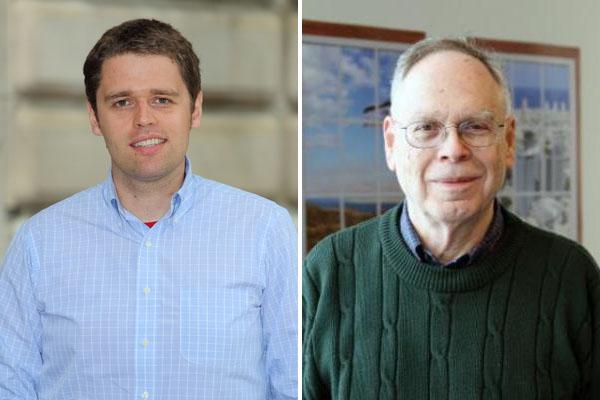Conference to examine 2016 presidential election

The 2016 U.S. presidential election was marked by sharp contrasts between the major party candidates on domestic policies, as well as both presidential nominees seeking to create clear distinctions from President Obama’s foreign policies. The election also featured a marked departure from the normal way that questions of race and nationality were addressed, at the same time that populist movements in several European liberal democracies were stoking suspicion of foreign trade and immigration.
The topics raised by the 2016 election are crucial for the academic understanding of elections. Did the marked foreign policy differences between the candidates affect vote choice? What role did racial and religious identity play in forging U.S. political coalitions? How important was a generalized resentment of governing elites that was amplified by social media? What about gender and domestic issues such as Obamacare?
"The 2016 U.S. Presidential Election: Tumult at Home, Retreat Abroad,” organized by Thomas Wood (left) and Herbert Weisberg, will examine voting in the 2016 election, with attention to the effects of foreign and military policy as well as domestic issues. The conference will take place Friday, November 3, through Saturday, November 4, at the Mershon Center for International Security Studies, 1501 Neil Ave. Read more and register
The 2016 U.S. presidential election occurred following the conclusion of major conventional operations in Afghanistan and Iraq. In their place was an amorphous involvement in drone strikes against individuals deemed a security threat, material aid to proxies fighting recalcitrant regimes, and direct military action for specific operations. For the first time in the post-9/11 era, the United States was not committed to costly military operations abroad.
Both nominees’ foreign policy represented clear breaks from their parties’ recent history. Republican nominee Donald Trump expressed deep skepticism toward the economic and security institutions that both parties had supported for 70 years. He suggested a possible end for the U.S. role as a security guarantor for Western European allies.
Democratic nominee Hillary Clinton also sought a clear distinction from President Obama’s example. Most importantly, she implied that Obama’s failure to take more forceful steps to check the Assad regime contributed to the protracted lethality of the Syrian civil war. She also sought a more forceful counterbalance to the strategic aspirations of China and Russia, despite her own role previous implementing Obama’s attempted rapprochement to those powers.
Trump’s election also featured a marked departure from the normal way that U.S. office holders address the questions of race and nationality. Traditionally racial appeals in U.S. politics were expected to be coded and suggestive. Naked appeals to racism were thought to be counterproductive, since they were expected to inspire counter argument founded in the American voters’ ethos of equality. Trump’s rhetoric of the threat posed by immigrants and religious minorities demonstrates this theory was either unfounded or under-specified.
The 2016 U.S. Presidential Election conference brings together political science and communication scholars to consider the forces that affected the election and its outcome. Participants from outside Ohio State include Walter Borges, University of North Texas at Dallas; Daniel Hopkins, University of Pennsylvania; William Jacoby, Michigan State University; Diana Mutz, University of Pennsylvania; Eric Oliver, University of Chicago; Ethan Porter, George Washington University; Wendy Rahn, University of Minnesota; and John Sides, George Washington University.
Participants from Ohio State include Paul Beck, Department of Political Science; R. Kelly Garrett, School of Communication; Christopher Gelpi, Department of Political Science; Richard Gunther, Department of Political Science; Vladimir Kogan, Department of Political Science; and Erik Nisbet, School of Communication.
The conference is co-sponsored by the Democracy Studies Program and the Division of Social and Behavioral Sciences in the College of Arts and Sciences at The Ohio State University.
Consistent with the previous conferences on U.S. presidential elections, participants will undertake to publish a compendium of the papers in a book or special journal issue. Weisberg organized a conference on the 2000 election that resulted in a well received book, Models of Voting in Presidential Elections: The 2000 U.S. Election (Stanford University Press, 2004). A 2006 conference led to a special issue of Political Behavior, edited by Weisberg. A 2009 conference led to a symposium in Electoral Studies, also edited by Weisberg. A 2013 conference led to a special issue of Electoral Studies, edited by Weisberg.
